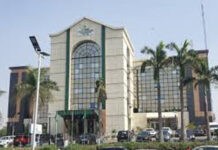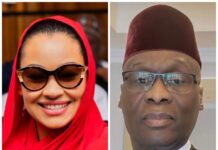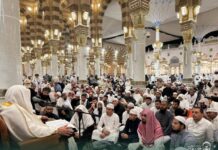The Nigerian Supreme Council for Islamic Affairs (NSCIA) has urged the federal government to to tread the path of dialogue rather than resorting to violence with the military junta in Niger Republic, saying that violence does more harm than the intended good in any circumstance.
The Islamic apex body in a statement signed by the Deputy Secretary-General, Prof. Salisu Shehu, NSCIA said although the military junta in Niger has remained defiant, it however called on ECOWAS and particularly the federal government to retrace their steps to avoid correcting one wrong with another.
“The Council observes with dismay, that ECOWAS has just lately further imposed more stringent sanctions against it. But it is well known that such kinds of economic sanctions are counter-productive and eventually end in futility. It is the masses that do suffer the pains and difficulties of the sanctions while the junta that seizes power takes control of state resources and begins a life of indulgence.
•READ ALSO: Following the Prophet’s Sunnah in our Respect for Nature
“The Council therefore, calls on ECOWAS and in particular, the Nigerian Government to retrace their steps in this regard to avoid correcting wrong with another.”
While Nigeria spearheads the imposition and heaping of sanctions on Niger, it should be reminded of the thousands of Nigerian refugees to whom Niger provided succor and safe abode for several years now. This is undoubtedly an act of good neighbourliness, rare hospitality and kindness that should not be reciprocated with measures that would cause disaffection, breed hate and hostility and aggravate the sufferings of the downtrodden people across both sides of the borders.
“While it is understandable that the leadership of both ECOWAS and Nigeria must preserve and protect democracy by discouraging forceful take-over of power through military coup d’état, the NSCIA strongly implores the Federal Government of Nigeria and by extension the leadership of ECOWAS to continue to tread the path of dialogue rather than resorting to violence. This is because violence does more harm than the intended good in any circumstance. Should violence break out in Niger, it is the helpless and hapless masses, who have already been devastated and impoverished by the impact of the Covid-19 pandemic on the world economy, that would pay the very costly price, not the coup plotters.
“It is pertinent to state here that Nigeria has not gotten away with its own intractable issues and challenges of insecurity and violence that have been causing death incessantly, displacing millions and destroying livelihood in states that share borders with Niger. The Boko Haram insurgency in the Northeast and the banditry in the Northwest have not been subdued. Given this situation it would not only take a dance on the precipice to embark on military expedition at this material time, but would also smack of ingratitude to a neighbor that had consistently remained faithful in helping and supporting us in our fight against those extreme groups and criminal gangs.
“The Council has consciously and keenly followed the reactions that have trailed the rather belligerent stand of the ECOWAS and its resolutions that include possible use of violence in Niger. It can be asserted without fear of contradiction that Nigerians are very much united against military intervention in Niger. Many religious and civil society groups across religious, ethnic and regional divides, as well as elder statesmen and retired military veterans and security experts have all categorically rejected the use of violence in intervening in Niger. In this regard, the Council hereby reiterates the need to pursue peace by peaceful means as any war between Nigeria and Niger would severely strain the fraternal relationship between the two countries which dates back to the pre-colonial era. There is therefore, no option to dialogue, and to be forewarned is to be forearmed.
The Muslim apex body prayed Allah to grant the leaders the wisdom and ability to resolve the crisis in Niger in a peaceful manner.






















